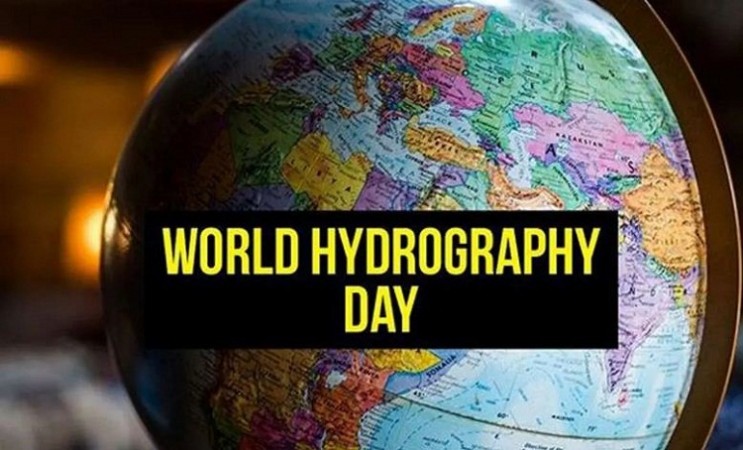
June 21 marks World Hydrography Day, an annual event that aims to raise awareness about the crucial role of hydrography in the sustainable development of marine and freshwater environments. Hydrography, the science of measuring and describing the physical features of bodies of water, plays a vital role in various aspects of human life, from navigation and resource exploration to environmental protection. This day provides an opportunity to appreciate the work of hydrographers worldwide and to promote the responsible management of our water resources.
Understanding Hydrography: Mapping Our Water Resources: Hydrography involves the study and mapping of oceans, seas, lakes, rivers, and other bodies of water, including their physical features, tides, currents, and the distribution of marine life. The data collected by hydrographers is used to create accurate nautical charts, maps, and bathymetric models that aid navigation, maritime safety, and marine research.
Accurate hydrographic information is essential for mariners, fishermen, and other water-related industries to safely navigate through waterways and avoid hazards such as shallow waters, wrecks, and submerged obstacles. Moreover, hydrographic data is crucial for understanding coastal erosion, sediment transport, and the impact of human activities on marine ecosystems.
The Role of Hydrography in Sustainable Development: As our world faces increasing environmental challenges, hydrography plays a critical role in promoting sustainable development and safeguarding our water resources. Here are a few key areas where hydrography contributes to a sustainable future:
Maritime Navigation: Hydrographic surveys and accurate charts are vital for safe and efficient maritime navigation, reducing the risk of accidents and improving the reliability of global shipping routes. This supports international trade and helps prevent environmental disasters caused by shipwrecks and oil spills.
Coastal Zone Management: The study of coastlines, including erosion, sedimentation, and sea-level rise, helps coastal communities develop effective management strategies to protect their shorelines. Hydrography contributes to coastal zone planning, the design of coastal infrastructure, and the mitigation of natural hazards such as storm surges and tsunamis.
Marine Resource Management: Hydrography plays a key role in managing marine resources sustainably. By accurately mapping the seafloor and identifying habitats, hydrographers assist in the conservation of vulnerable ecosystems, the sustainable exploitation of fisheries, and the development of offshore renewable energy sources such as wind farms and wave energy converters.
Environmental Monitoring: Hydrographic data helps monitor and assess the health of marine environments, including water quality, pollution levels, and the impact of climate change. This information supports the development of effective environmental policies and enables early detection of harmful algal blooms, coral bleaching events, and other ecological disturbances.
Disaster Prevention and Response: Hydrographic data is crucial for disaster preparedness and response. Accurate knowledge of coastal topography and the potential impact of tsunamis, hurricanes, and storm surges helps authorities develop evacuation plans and emergency response strategies to minimize the loss of life and property during natural disasters.
World Hydrography Day serves as a crucial reminder of the invaluable role that hydrography plays in our lives. It highlights the significance of accurate and up-to-date maritime charts and data for safe navigation, sustainable use of marine resources, and the protection of marine environments. By recognizing the efforts of hydrographic organizations worldwide and promoting international cooperation, this day encourages the advancement of hydrographic sciences and technology. Ultimately, World Hydrography Day contributes to the well-being of coastal communities, maritime industries, and the preservation of our oceans for future generations.